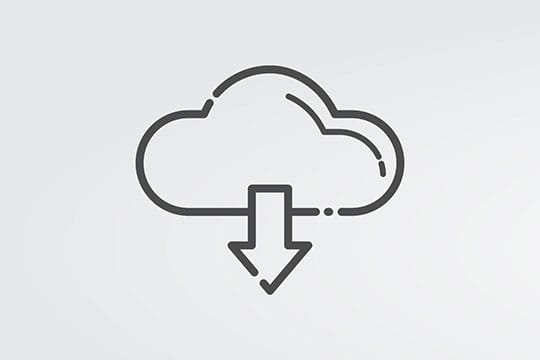Many companies believe that they would benefit from a cloud computing system. They believe that such a system will help them save money while not having to handle their own servers. Cloud computing can be useful in some instances. It is certainly a fast-moving industry that is growing and becoming more efficient by the day. However, it should not be a total replacement for solid storage for any company. Solid storage has a number of benefits that cloud computing simply cannot match even in its most sophisticated, secure form.
Cloud storage

Cloud storage is the newest trend in computer storage on the market today. This form of storage involves companies basically having all of their storage needs hosted offsite in a far-away server that they require a password to access. Cloud storage companies have massive server farms where they can cheaply store all of the data from their users. Companies maintain that data for a fee.
The cloud storage model is attractive for a number of reasons. Many business owners do not want to have to worry about their own servers. They believe that servers are complicated and are afraid of potential data breaches at any time. Cloud computing involves transferring over all of the responsibilities for server management to the cloud computing company. Business owners simply have to put in their password, access their data, and occasionally pay for more storage when their allocated space fills up.
Recommended for you: How Can You Use Cloud Technology for Your Small Business?
Limitations of the cloud

Cloud storage definitely has its flaws and its limitations. First of all, the cloud storage system makes a company’s files dependent on an internet connection. A company may have their desktops and laptops simply act as terminals to access the internet and take advantage of the cloud storage system. All of the files are held offsite and accessed through the internet. If there is an outage, the company cannot access their files. While outages may be rare, even an outage of a few hours could cost thousands of dollars for a company.
Companies may miss deadlines or be served late penalties. There is also the possibility of hacking and security breaches in cloud servers. The cloud server inevitably has an access point that a business uses. That access point could be illicitly hacked and discovered by a malevolent group who could use it to access bank records and steal personal information. Viruses, hackers, and malware can also prevent computers at a company from accessing the internet. Until the problem is fixed, the company’s data may be stuck at a server farm that cannot easily be accessed.
Types and benefits of solid storage

Solid storage provides a different option. This form of storage often comes in two kinds. One is the small storage devices like that of flash drives, SD cards, and external hard drives. This form of storage is most effective for physical transfers that an individual can make. Information can be stored on a flash drive and then easily sent or transferred to a number of different computers. SD cards often have the data stored by a video camera or audio recorder. A company that utilizes these cards often can buy adapters where the card can be uploaded through a USB port and used to transfer data between computers.
Another form of solid storage is an on-site server or external server. These servers are physically located near computers and can be scaled up to handle larger files and higher amounts of data. Both flash drives and on-site servers are beneficial because of how they can be used during an internet outage. Servers and portable drives can be hooked up to a computer network outside of Wi-Fi or wired internet connections. The servers may use a local network that still allows the computers within a company to communicate with each other and share files located on their computers or on the servers.
A company can still work and access their records during even the longest internet outages. This offline potential saves companies time and allows them to complete projects. Servers and flash drives can also allow a company to take a more hands-on approach to security. The security of cloud computing networks is not always perfect or made transparent to business owners. These individuals can pay for encryption and monitoring services that a cloud computing storage system may not make available. This personal control gives business owners peace of mind that they can do as much as they can to keep their data safe.
You may also like: How Cloud Computing is Improving the Healthcare Industry.
Final Thoughts

Solid storage may seem like a relic to some company owners. Even with this reputation, it can be an essential part of a data storage solution. Solid storage systems serve as a safe alternative or as a backup to a cloud system. They make physical transfers of data possible and are particularly attractive to anyone worried about a cloud computing hack. Business owners need to at least consider solid storage as a component of their data storage needs and attempt to blend the cloud computing with the use of physical storage devices used on site.
This article is written by Alex Fisher. He is a contributor at BulkMemoryCards.com and enjoys staying up to speed in the world of technology. He likes to share his learnings & experiences through writing and photography. You can learn more about him and his endeavors at Twitter.





